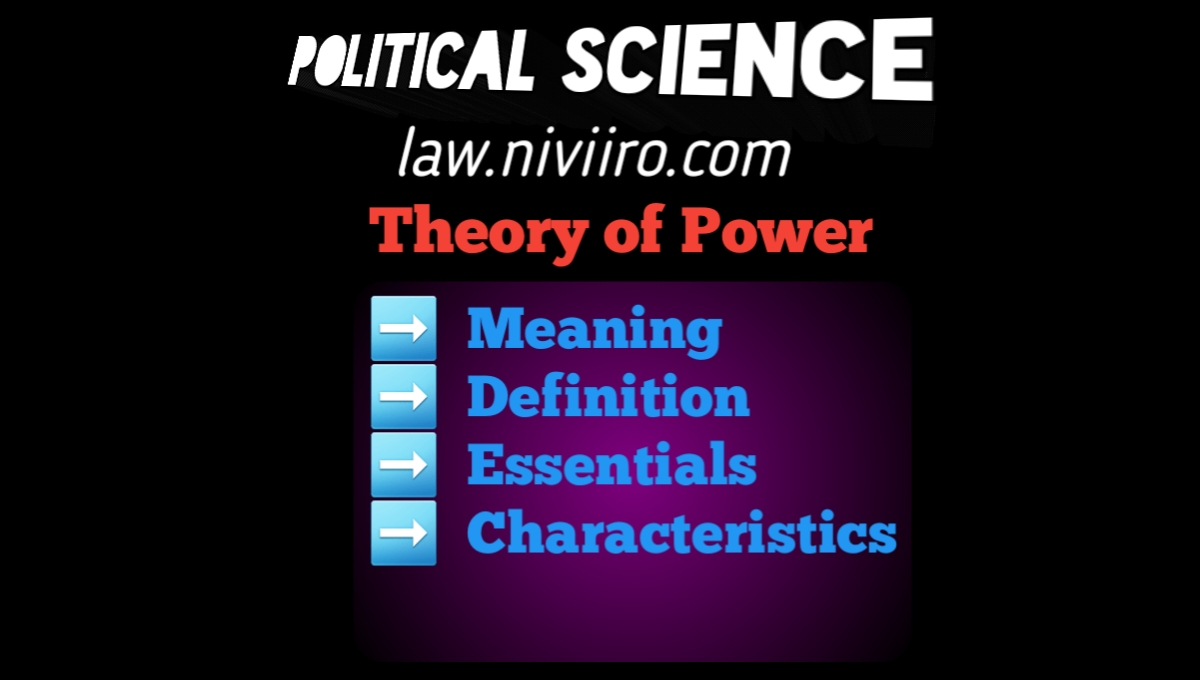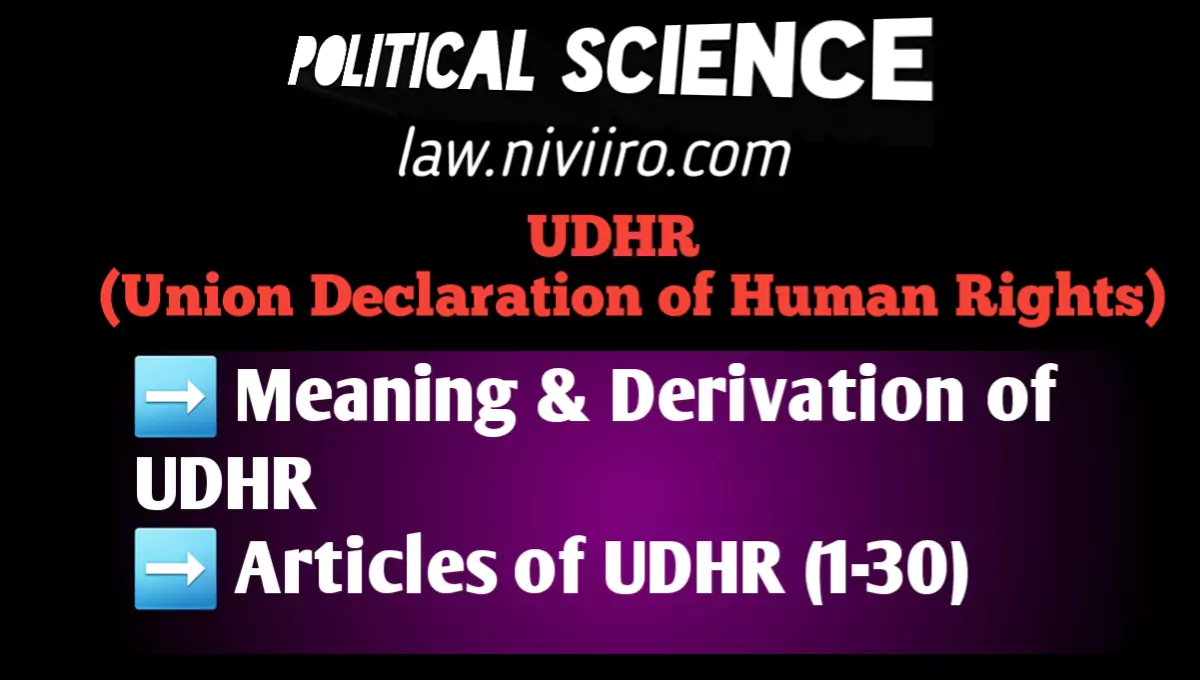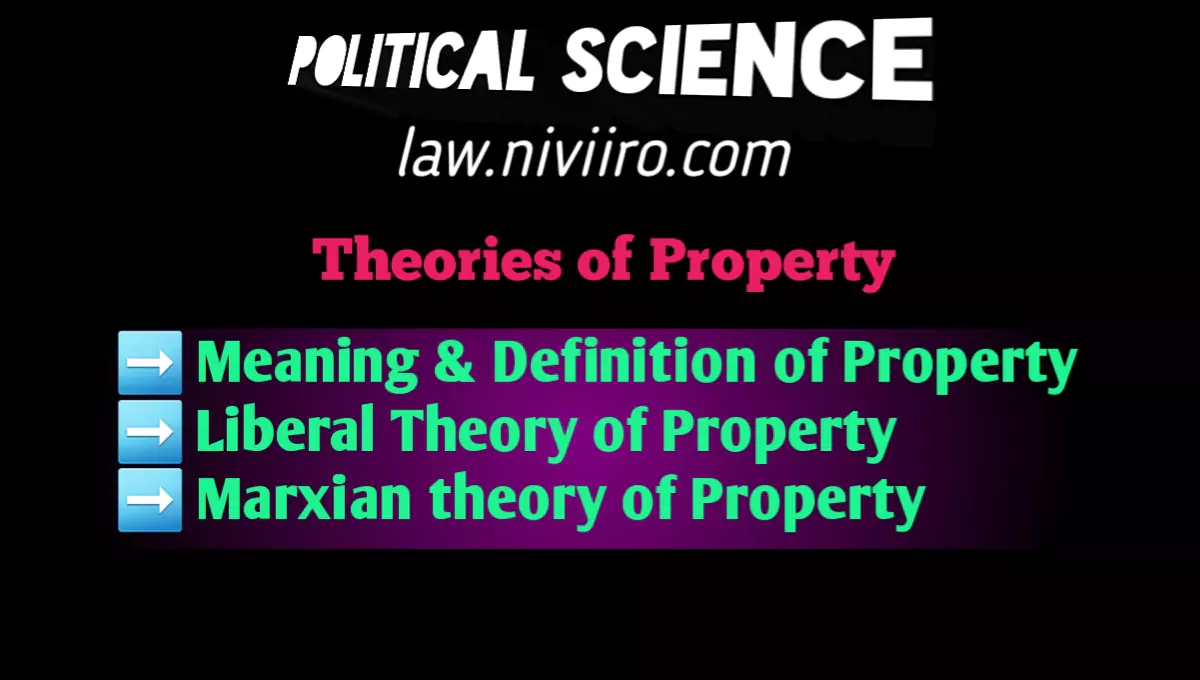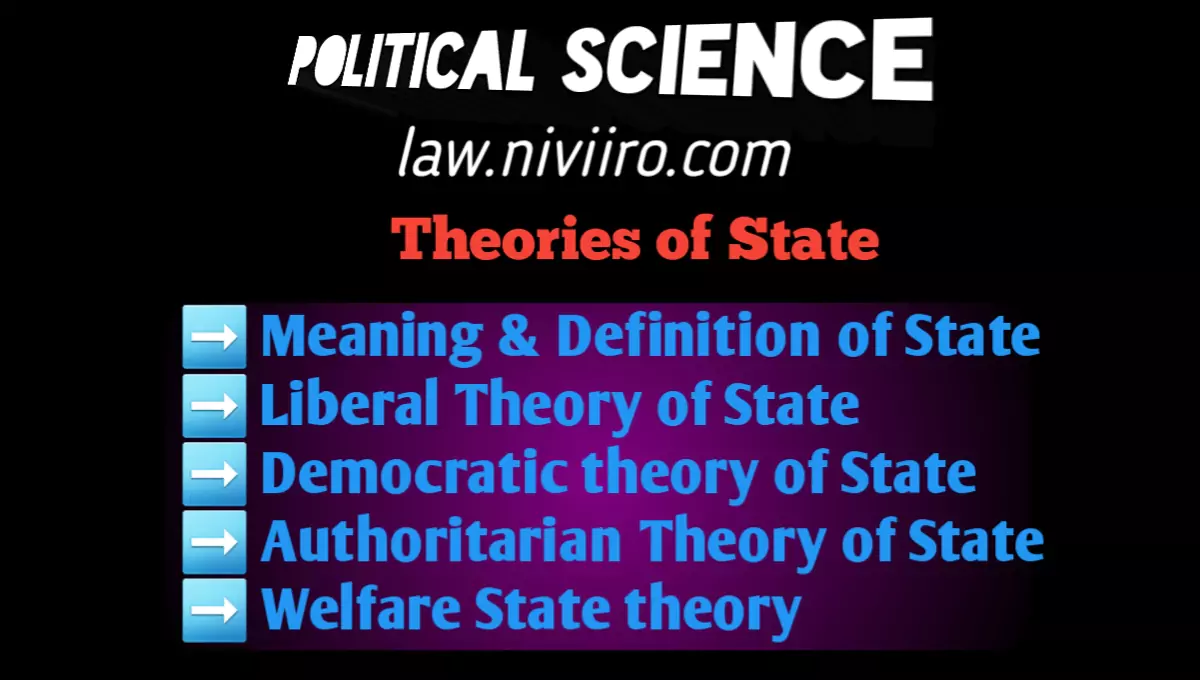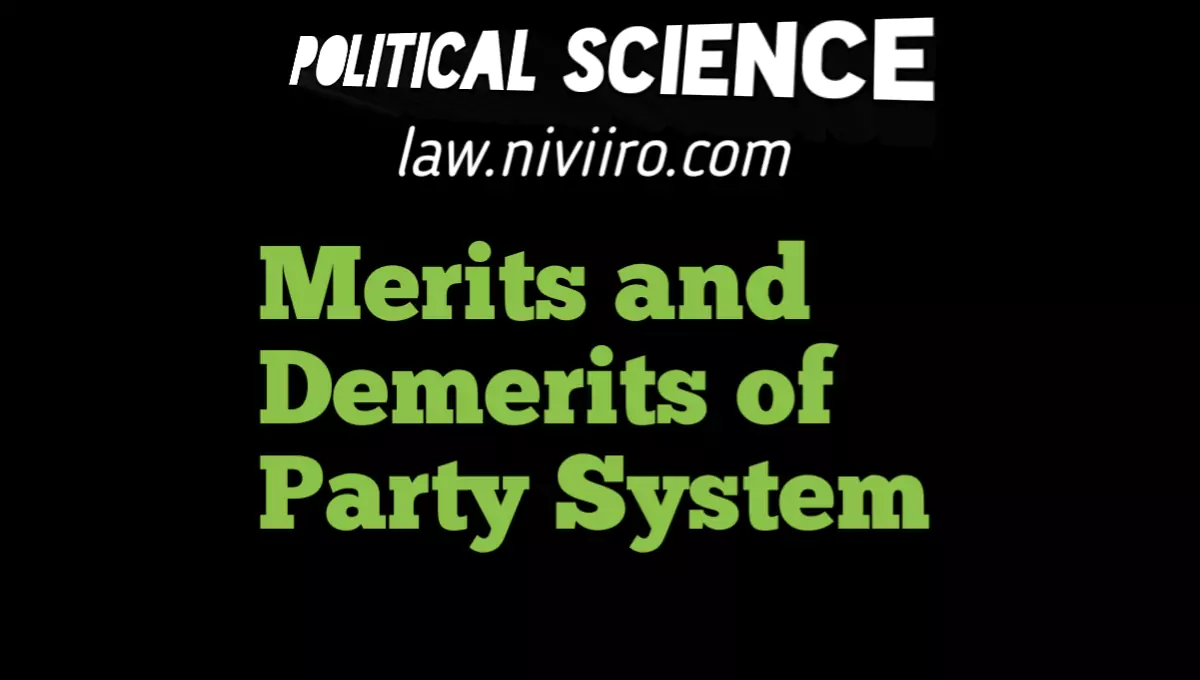The concept of power is the most influential in Political Science as a whole. It is studied in politics as a factor influencing public behaviour and hence altering a political system. Power and its significance are not new concepts. Socrates, Plato, Aristotle, and others acknowledged the necessity of power in their own ways.
In our country, Kautilya’s great work Arthshastra shed enough light on the necessity of power because it was the foundation of all human life. Machiavelli, Hobbes, Treitschke, and Neitzche have all underlined the role of power in the modern era. Catlin, Charles Merriam, Harold Laswell, H.J. Morgenthau, and others have accepted power as a basic idea in the twenty-first century.
The concept of power, according to Catlin, is crucial in political science. In the new and modern perspective, political science is associated with ‘politics’ and more; the latter is favoured over the former. The main emphasis here is on power, which plays an important role in the fight in which individuals and their groups may be found involved depending on their capability and level of interest at all levels-local, regional, national, and worldwide.
Meaning and Definition of Power
Among all the disciplines of social sciences Political Science makes the maximum use of Power’, ‘Authority’ and ‘Influence’ to solve the problems of state and its people.
There is no unanimity among the political scientists regarding the definition of power. Political scientists use a variety of terms: power, influence, authority, control, persuasion, might, force and coercion to convey the same meaning. Ostensibly they seem to be synonymous political concept but in reality they have been interpreted differently and also named differently by the scholars of Political Science from time to time.
Definitions of Power :
- According to Morgenthau, “Power in politicul context means-power of man over minds and actions of other men.”
- Catlin defines power “as the ability to be free in affecting one’s own will and to control whether exercised or not exercised, but potential.”
- According to Laswell and Kaplan. “The concept of power is perhaps the most findamental in the whole of Political Science; the political process is the shaping, distribution and exercise of power.”
- According to Herbert and Edward Shills, “Power is the ability to influence the behaviour of others in accordance with one’s own ends.”
- Max Weber defines power as “the probability given to an actor within a social relationship will be in a position to carry out his own will despite resistance regardless of the basis on which the probability rests.”
- According to Robert Bierstedt, “Power is an ability to use force rather than its real use.”
- According to M.G. Smith, “Power is the ability to act effectively over people and things using means ranging from persuasion to coercion.”
Essential Conditions of Power
Following are the Essential Conditions of Power :
1 Individuals and Subordinates. 2. Reasonable and Judicious.
3. Other Powers. 4. Accumulation and Retention of Powers.
1. Individuals and Subordinates – Power does not exist in the absence of individuals. It necessitates the individuals over whose authority is to be exercised. Individuals who are to be subordinated and who are to carry out power precepts must exist. As a result, having those over whom authority is to be exercised is critical.
2. Reasonable and Judicious – Power that is not based on reason and public agreement is only a force. If authority is to be maintained, it must be founded on public consent and be in the public interest. Aside from that, authority should be used wisely and prudently.
3. Other Powers – Aside from political power, there are numerous other powers that are necessary to perpetuate and retain power as a political idea. Money, wealth, war, weaponry, religion, voting power, citizen belief, and so on are examples of these powers. All of these powers are sufficient in themselves and are not subordinate to any other power, yet they all have an impact on political power.
4. Power Accumulation and Retention – It is not enough to gain and amass power; it is also vital to organise, preserve, and collaborate with it.
Characteristics of Power
The characteristics of power are the following:
1. Power is relational – Power is always relational, according to Lasswell and Kaplan. It is not the property of a single person; at least two actors are necessary, one who wields power and the other who is subjected to it. Power is an interpersonal interaction in which those who wield it are empowered. They rely on and exist only as long as there are continuous streams of overwhelming response.
2. Bilateral concept – Power refers to a relationship that exists (temporarily or permanently) between two or more people or groups. In other words, it places two actors in a relationship where one can affect the behaviour of the other.
3. Sanctions are situational – Power is determined by the occasion, circumstances, and position. When one maintains a specific status and is put in a specific environment, one enjoys power. He losses his power when either one gives up that status or that situation does not exist. Power is often institutionalised in modern society, which means that it is held by well organised and formally acknowledged institutions rather than individuals. It is presided over by those who preside over these institutions.
To demonstrate, we frequently refer to the President’s or Prime Minister’s powers. While doing so, we followed the law of the land. Institutionalised power refers to such of their powers as have been vested in them by the constitution, something that continues indefinitely.For, it vests not in individuals who come and go, but a institution which seldom change.
4. To Influence the behaviour of other– A powerful person is someone who has the ability to influence the actions, functions, and policies of others. This capacity can be physical, economic, intellectual, or any other. According to Goldhamer, “An individual or a nation wields power to the extent to which he is capable of changing others behaviour according to his wish”. That is why, according to Robert Dahl, power is one of the influence terms. To illustrate, Father has power in the family in the sense that he continuously impacts, albeit unknowingly, the behaviour of the other members of the family.
5. Power implies some form of possession – First and foremost, power implies some form of possession. When someone gains power, he gains something that he previously lacked. That something is the ability to perform an act or acts that others are unable to perform. Illustrating this Friedrich remarks, “When one is elected to office, he receives with that office certain stated powers to have and to hold like possessions.
They can be played with, abused, wielded, and so forth. With his office, every office bearer gains a certain measure of such power.’ This interpretation, however, has not found widespread favour. Power is viewed differently in a relational context.
6. Sanctions behind power are essential – While sanctions are required for the exercise of power, their availability is insufficient. It is essential to distinguish between power and influence. The individual faced with sanctions must understand what is expected of him and the alternatives available to him in the event of noncompliance.
7. Actual Power bearer is not clear – There are two aspects of power: actual and potential. Actual power is defined as the power that a person or community actually wields. Potential power is the power that a person or a community has but has not yet exercised. In parliamentary democracy, there are so-called cabinet dictatorshin, but behind them is a dictatorship of bureaucracy.
8. Power is determined by how it is used-The president of the United States has huge powers that he actually employs, whereas the president of India is merely a constitutional head who does not employ power.
9. Power is functional – Power is used to achieve specific aims or objectives. In other words, when one influences another’s behaviour or behaviours, he usually does it with a specific aim in mind. He may want the other to accomplish a certain task for him or to act in accordance with his wishes, and so on. In this context, Tawney Bertrand Russell and David Easten use the word. When utilised without a goal in mind, it is shown to be counterproductive. It will be a waste of time and energy, and people subjected to it may resent it.
People will tolerate it more if it is utilised with clear and widely understood purposes. According to Karl Deutsch, “Power cannot accomplish more than a succession on randiom impact on the environment unless there is some relativity fixed goal or purpose. There are some decisions by which the application of power can be guided or directed.”
10. Power have goals – Political power stems from an effective organisation and the use of proper strategies to sustain it. To keep organisations focused on their predetermined goals, tremendous skill and developed procedures are required. There are numerous power purposes, including I communal benefit, (ii) conscious pursuit of self-interest, and (iii) pursuit of unconscious motives. These objectives can be adjusted or recast in response to a change in leadership or changing circumstances.
11. Power is an abstract concept, not an absolute value – Power cannot be seen, only felt. It’s not a physical thing. Power cannot be seen in its physical form. According to Robert Dahl and Lasswell, power is not an absolute value, but rather one of several. People crave power because they want to utilise it to achieve other goals. It is thus a tool for determining values. As a result, it is not a goal in itself, but rather a means to an end.
Related Post
Define Power ?
According to Morgenthau, “Power in politicul context means-power of man over minds and actions of other men.”
Catlin defines power “as the ability to be free in affecting one’s own will and to control whether exercised or not exercised, but potential.”
What are the Essential Conditions of Power ?
Following are the Essential Conditions of Power :
1 Individuals and Subordinates. 2. Reasonable and Judicious.
3. Other Powers. 4. Accumulation and Retention of Powers.
Explain Characteristics of Power ?
The characteristics of power are the following:
1. Power is relational – Power is always relational, according to Lasswell and Kaplan. It is not the property of a single person; at least two actors are necessary, one who wields power and the other who is subjected to it. Power is an interpersonal interaction in which those who wield it are empowered. They rely on and exist only as long as there are continuous streams of overwhelming response.
2. Bilateral concept – Power refers to a relationship that exists (temporarily or permanently) between two or more people or groups. In other words, it places two actors in a relationship where one can affect the behaviour of the other.
References
- Foundations of Political Science, Dr. Sunita Gangwal
- J.C. Johari, Political Science
- Prof. H.C. Verma, Modern Political Theory
- V.D. Mahajan, Political Theory
- Prof. S.L. Verma, Modern Political Theory
- M.P. Jain, Political Theory liberal and Marxiam
- R.C. Agarwal, Political Theory













